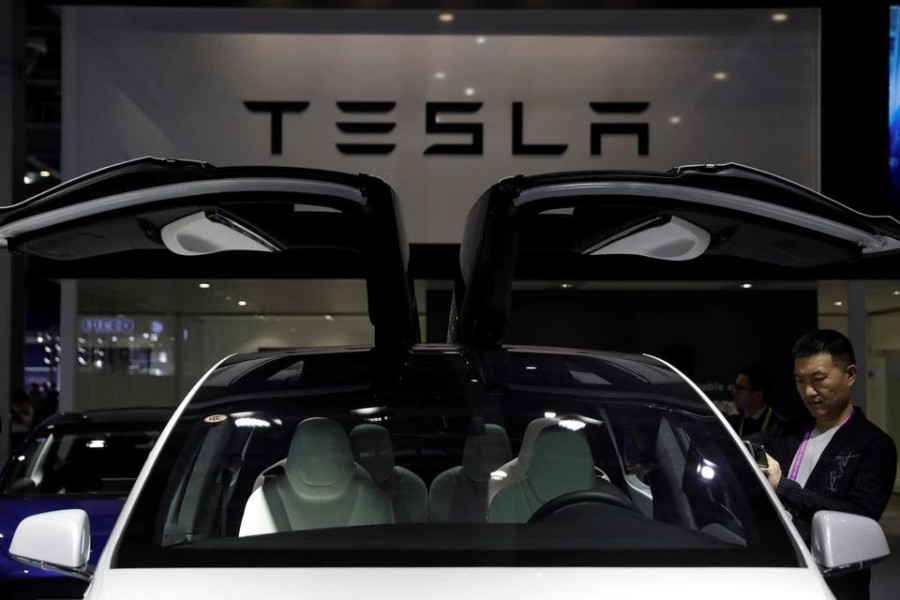China is in talks with automakers about extending expensive subsidies for electrical automobiles (EV) that had been set to run out in 2022, aiming to maintain a key market rising because the broader economic system slows, three folks conversant in the matter stated.
The transfer by policymakers comes because the world’s second-biggest economic system has slowed sharply – and auto gross sales together with it – after cities led by Shanghai imposed tight COVID-19 lockdowns from March. The curbs have shut shops, disrupted provide chains and slashed spending, together with on new properties, reports Reuters.
Authorities departments together with the Ministry of Info and Industrial Know-how (MIIT) are contemplating a continuation of subsidies to EV patrons in 2023, stated the folks, who declined to be named because the discussions had been personal.
China’s costly incentive programme has been credited with creating the world’s largest EV market. For the reason that subsidies started in 2009, some 100 billion yuan ($14.81 billion) has been handed out to patrons together with business fleet operators as much as end-2021, in accordance with an estimate by Shi Ji, an auto analyst with China Retailers Financial institution Worldwide.
The phrases of the 2023 extension, together with the quantity of the subsidies and which automobiles would qualify for them, haven’t been finalised, they stated.
Subsidies have been accessible for vehicles made by all automakers together with non-Chinese language gamers like EV big Tesla O>, which has a manufacturing unit in Shanghai and is the one overseas automaker with a top-selling EV.
The MIIT and Ministry of Finance did not instantly reply to requests for touch upon Wednesday.
The EV subsidy scheme was initially scheduled to be phased out by the top of 2020, however Beijing prolonged it for 2 years to spur demand within the wake of the COVID pandemic.
The federal government additionally reduce the quantity of subsidies per car over time because the demand surged and manufacturing prices fell. For instance, the subsidy for a plug-in hybrid with a spread of over 300 kilometres was reduce by about 20 per cent to the equal of about $1,900.
EVS FOR $4,000
The programme of incentives for purchasing what China calls new-energy automobiles (NEV) has stoked purchases of vehicles with longer driving vary specifically, because it has raised the brink on automobiles qualifying for the subsidies over time.
Within the extremely developed China EV market, smaller battery-powered metropolis vehicles, most of which do not qualify for subsidies, make up 40 per cent of EV gross sales, in accordance with auto consultancy JATO, and price on common just below $4,000. That compares with extra $26,000 in the US for equal fashions.
Subsidies at the moment are focused at greater fashions, with a driving vary of greater than 300 kilometres per cost and priced below 300,000 yuan ($44,459).
China’s NEV gross sales elevated 45 per cent year-on-year in April, in accordance with information from China Affiliation of Vehicle Producers. However that was a a lot slower tempo than development in earlier month, when gross sales greater than doubled from a 12 months earlier.
The affiliation has forecast manufacturing and demand to start to catch up in the coming weeks after the April trough, triggered when dozens of cities in China had been in full or partial COVID lockdown.
Some native governments, together with Guangdong and Chongqing, had additionally rolled out stimulus measures to subsidise customers who alternate their outdated combustion engine automobiles for brand spanking new EVs in April.
In what could be a separate transfer, state-owned newspaper China Securities Journal reported on Tuesday that officers would introduce subsidies from June to encourage extra rural patrons to buy vehicles together with NEVs, with payouts of as much as 5,000 yuan ($740) per car.



 For all latest news, follow The Financial Express Google News channel.
For all latest news, follow The Financial Express Google News channel.